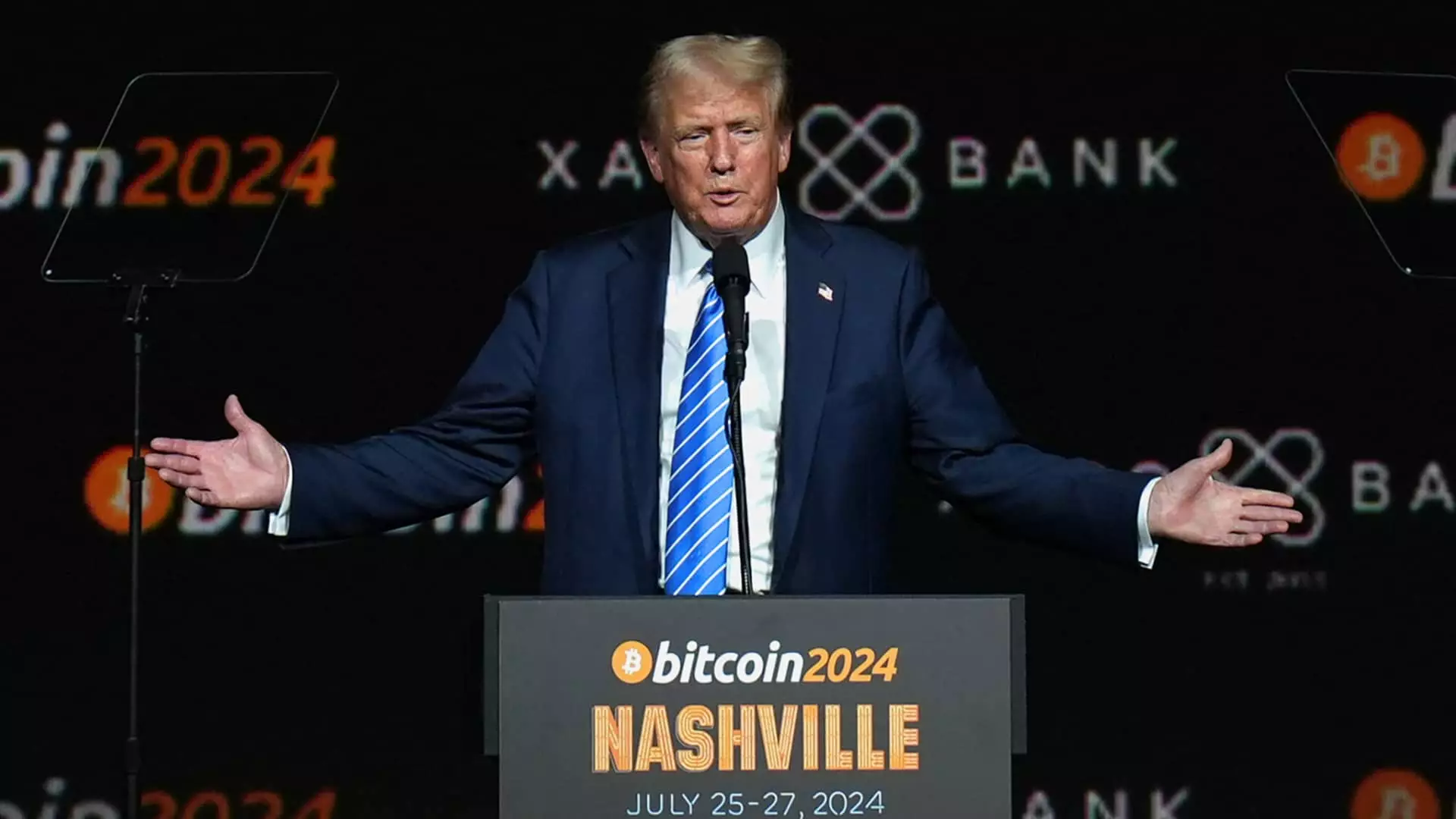Donald Trump has long been a figure who ignites debate, whether in politics or business. His recent foray into the cryptocurrency realm through World Liberty Financial (WLF) is no exception. The project, which he previously promoted under the moniker “The DeFiant Ones,” is being unveiled at a time when he is once again vying for political power, pitting him against Vice President Kamala Harris in a heated race. The release of the “World Liberty Gold Paper,” a 13-page document detailing the initiative, has raised eyebrows regarding its potential implications on the crypto landscape and on Trump’s political aspirations.
The paper outlines WLF’s ambitions to establish a platform that facilitates borrowing, lending, and investing in digital currencies. Despite these ambitious goals, it appears that a significant proportion of the project’s financial returns will benefit Trump and his family. They stand to gain a staggering 75% of the net revenue, with initial allocations including 22.5 billion “$WLFI” tokens valued at approximately $337.5 million. This potential personal profit stands in stark contrast to the project’s claims of detachment from political activities.
WLF’s financial structure is further elucidated in the recently released document, indicating that a Delaware-based company connected to Trump, DT Marks DEFI LLC, is expected to garner three-quarters of the net protocol revenues. This model raises pertinent questions regarding the ethical implications of combining personal financial gain with a platform ostensibly aimed to democratize finance through decentralized means. Critics may argue that the design of such a project challenges the integrity of the cryptocurrency market and risk undermining trust in digital assets.
Tokens typically undergo rigorous distribution protocols, with detailed white papers outlining their allocation, intended usage, and broader vision. However, WLF’s paper appears somewhat ambiguous concerning which portions of the token supply directly benefit the Trump family versus other stakeholders. While it does enumerate distinct categories such as community growth and incentives, there is a notable lack of transparency regarding the specifics of Trump’s share.
One major concern regarding World Liberty Financial is the lack of regulatory oversight that commonly plagues many crypto ventures. The paper notes that neither Trump nor his family will serve as employees, directors, or operators of WLF, which could shield them from legal liabilities that typically invest personal accountability in company executives. This detachment raises apprehensions over investor security, as the guidance typically associated with traditional financial instruments is notably absent in this scheme. Investors are left reliant on the assurances provided by the paper and the operational framework it sketches.
Moreover, with a mere $12.9 million raised from an initial target of $300 million, the project’s viability could be in question. This discrepancy between ambitious financial goals and actual fundraising signals potential issues in market reception and investor confidence. The decision to allocate a significant percentage of the revenues to the Trump family may deter prospective investors wary of conflicts of interest.
This venture arrives in a politically charged atmosphere as Trump attempts to secure his position in the political realm while simultaneously embarking on a risky financial project. By brandishing WLF as a “crypto bank,” Trump positions himself at the confluence of contemporary finance and established political aspirations. However, the distinction he tries to create—asserting that WLF is apolitical—seems increasingly tenuous given the overlapping characters involved and the timing of the launch.
Additionally, the involvement of figures associated with Trump’s political life, including Steve Witkoff—a notable supporter and friend—renders it difficult to disentangle the project’s monetary and political entanglements. This raises further questions about the motivations behind the crypto venture: Is it primarily a financial opportunity, or is it a strategic maneuver to bolster his brand amidst a politically charged environment?
The unveiling of World Liberty Financial encapsulates the complex relationship between entrepreneurial ventures and political image-making. In a space that thrives on transparency and trust, Trump’s initiative raises red flags about ethical governance, financial integrity, and investor safety. As the line between the digital finance revolution and political maneuvering blurs, it remains to be seen how WLF will navigate these murky waters and the implications it holds, not just for investments but also for the broader cryptocurrency landscape and Trump’s political future.


Leave a Reply